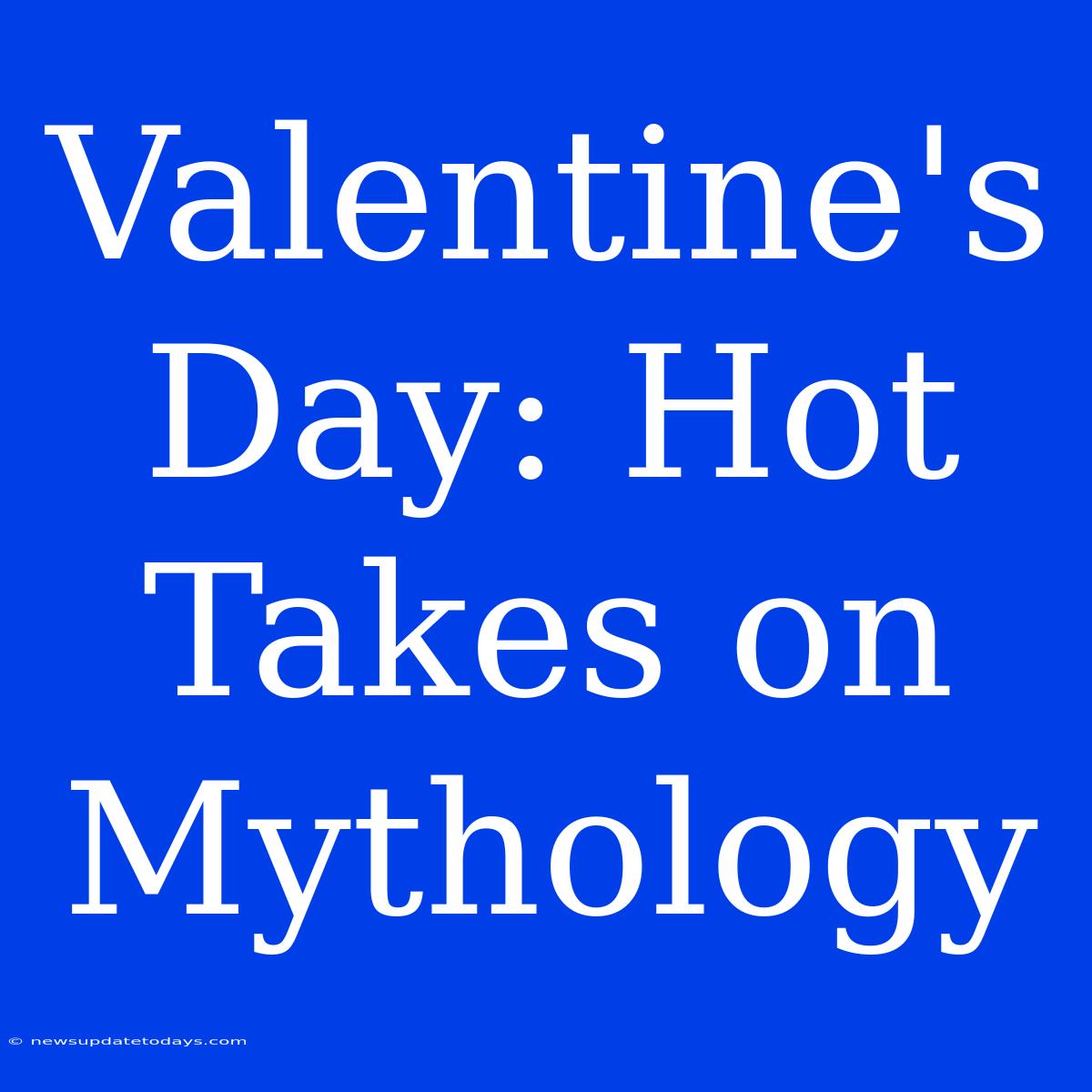Valentine's Day: Hot Takes on Mythology – Unmasking the Roman Roots & Beyond
Valentine's Day. Roses, chocolates, romantic dinners. But beneath the commercial gloss lies a surprisingly complex history rooted in mythology and ancient Roman rituals. Let's delve into some hot takes on the myths and legends surrounding this day of love (and maybe a little heartbreak).
Beyond the Saint: Lupercalia's Wild Roots
Forget the charming saint; Valentine's Day's origins are far wilder. Many historians believe it's linked to the ancient Roman festival of Lupercalia, a fertility festival celebrated in mid-February. This wasn't your typical romantic soirée. Think chaotic rituals involving animal sacrifice, whipping women with goat hides (believed to boost fertility!), and a lottery system where men and women were paired up for the year. Hot take: Forget the heart-shaped boxes; Lupercalia was all about raw, primal energy and the celebration of life's renewal.
Juno, Cupid, and the God of Love's Chaos
While Lupercalia might be the festival most associated with Valentine's origins, Roman mythology offers other relevant figures. Juno, the queen of the gods, was the patroness of marriage and childbirth. Then there's Cupid, the winged god of desire and love, whose chaotic arrows often caused more trouble than romance. Hot take: Cupid's capricious nature reflects the unpredictable and often messy reality of love – not always hearts and flowers, sometimes heartache and chaos.
The Myth of St. Valentine: Multiple Martyrs, One Legend?
The Catholic Church recognizes several saints named Valentine, adding to the mystery surrounding this holiday. Different stories emerged over time, intertwining with the existing pagan traditions. One popular legend tells of a priest who secretly performed Christian marriages for soldiers forbidden to wed under the Roman Empire, ultimately leading to his martyrdom. Hot take: The enduring power of St. Valentine's legend lies in its adaptability, successfully incorporating both the pagan celebrations and the Christian message of love and sacrifice.
Modern Interpretations: A Myth in Progress
Valentine's Day, as we know it, is a far cry from its pagan and early Christian roots. It's a constantly evolving myth, shaped by commercial forces, societal expectations, and individual experiences. Hot take: The modern celebration is a fascinating blend of ancient traditions, religious symbolism, and contemporary commercialism—a living, breathing myth that continues to adapt and change with each passing year.
Reframing the Narrative: Beyond the Commercialism
Instead of solely focusing on the commercial aspects, let's reclaim Valentine's Day's rich history and its inherent focus on love and connection. Whether it’s romantic love, familial love, or self-love, this day can be a celebration of those bonds that enrich our lives. Hot take: Let's appreciate the diverse and multifaceted origins of Valentine's Day and use it as an opportunity to celebrate love in all its forms, beyond the chocolates and roses.
This Valentine's Day, remember the wild, chaotic, and surprisingly complex history behind the holiday. Let's embrace the myth, questioning its traditions and shaping its future. What's your hot take on the mythology of Valentine's Day? Share your thoughts in the comments below!

